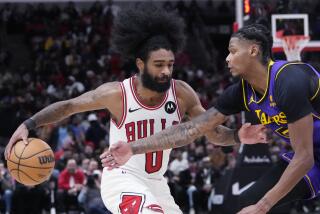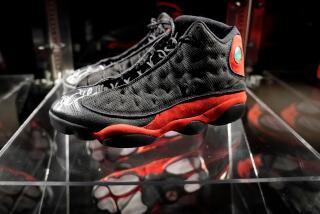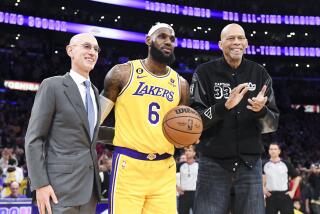1995-96 CHICAGO BULLS
The Boston Celtics had teams that were more feared and revered. The Lakers had teams with more superstars. But no team in NBA history had more regular-season victories than the 1995-96 Chicago Bulls, who completed their 82-game schedule with a record of 72-10.
Those 72 victories were an extreme yet impressive way for the Bulls to make a point that their three consecutive league titles from 1991 to 1993 could not. Despite a three-peat, despite the presence of Michael Jordan, the Bulls of the early 1990s were neglected whenever talk turned to the greatest pro basketball teams of all time. There was a “Yeah, but” quality to those Bulls championships, a consensus that Jordan was a one-man show taking advantage of a league overcome by post-Magic/Bird heyday malaise.
That opinion grew stronger when Jordan took Retirement I to dabble in minor league baseball. The Bulls fell from the limelight, and the NBA suddenly had a new repeat champion -- the Houston Rockets.
But in March 1995, Jordan rejoined the Bulls. A few months later, Chicago traded for a mercurial mixed bag of eccentricity, forward Dennis Rodman, whose good-rebound/bad-behavior act prompted the San Antonio Spurs to ship him to Chicago for Will Perdue (career average: 4.7 points a game).
The Bulls still had no center, but while Rodman was relatively undistracted, the team could be defensively fierce. Jordan, Rodman and forward Scottie Pippen made the league’s all-defensive first team, Chicago establishing another NBA precedent with three all-defensive first-teamers.
Offensively, it was more of the same. Jordan again led the league in scoring with a 30.4 average, scoring 40 points in a game 10 times and 50 once. Pippen, who joined Jordan on the All-NBA first team, averaged 19.4 points. Toni Kukoc (13.1 points) was named sixth man of the year, Steve Kerr converted more than 51% of his three-point attempts and the Bulls led the league in scoring.
The Bulls made runs at two seemingly untouchable records, both owned by the Jerry West-Wilt Chamberlain Lakers of 1971-72: the Lakers’ 33-game winning streak and 69-13 regular-season record. Chicago’s first bid was stopped at 18 consecutive victories, but that streak and shorter ones eventually began to add up.
The Bulls set new marks for best start to a season (41-3), best start at home (37-0), longest home winning streak (44, including seven from the previous season) and best 41-game road record (33-8).
On April 14, 1996, the Bulls defeated the Cleveland Cavaliers to catch the Lakers at 69. Two days later, they broke the record with an 86-80 triumph over the Milwaukee Bucks -- the same franchise that broke the Lakers’ 33-game winning streak 24 years earlier.
The playoffs were a predictable ride to the Bulls’ fourth NBA championship. Chicago won 15 of 18 postseason games, sweeping Shaquille O’Neal and the Orlando Magic in the Eastern Conference finals before dispatching the Seattle Supersonics in six games in the Finals.
The title was the first in a second three-peat for Phil Jackson’s Bulls. That tongue-twisting equation meant six NBA championships for Chicago in eight seasons. Whether those 1995-96 Bulls were the greatest team ever can be debated forever, but with 72 victories in 82 tries, they elbowed their way into the conversation.
--
More to Read
Go beyond the scoreboard
Get the latest on L.A.'s teams in the daily Sports Report newsletter.
You may occasionally receive promotional content from the Los Angeles Times.










